
Daugavpils: The Gem of Eastern Latvia
Daugavpils, Latvia's second-largest city, is a hidden gem waiting to be discovered by travelers. Nestled along the banks of the Daugava River, this city boasts a rich history, diverse culture, and impressive architecture. With its unique blend of Latvian, Russian, Polish, and Jewish influences, Daugavpils offers a truly multicultural experience. One of the city's main attractions is the Daugavpils Fortress, a well-preserved 19th-century fortification that provides a glimpse into the city's military past. The fortress is also home to the Mark Rothko Art Centre, dedicated to the world-renowned artist who was born in Daugavpils. Art enthusiasts will appreciate the center's extensive collection of Rothko's works and contemporary exhibitions. Nature lovers will find plenty to explore in and around Daugavpils. The city is surrounded by beautiful parks and nature reserves, such as the Daugavas Loki Nature Park, which offers scenic hiking trails and breathtaking views of the river. For birdwatchers, the nearby Lake Svente is a must-visit, as it is home to a variety of bird species. Daugavpils is also known for its vibrant cultural scene, with numerous festivals and events taking place throughout the year. The city's diverse culinary scene offers a taste of traditional Latvian dishes, as well as Russian, Polish, and Jewish specialties. Whether you're interested in history, art, nature, or food, Daugavpils has something to offer every traveler.
Local tips in Daugavpils
- Visit the Daugavpils Fortress early in the morning to avoid crowds and get the best photo opportunities.
- Make sure to check the schedule of events at the Mark Rothko Art Centre, as they often host special exhibitions and workshops.
- Pack comfortable shoes for walking, as many of the city's attractions are best explored on foot.
- Try traditional Latvian dishes at local restaurants, but don't miss out on the Russian, Polish, and Jewish cuisine as well.
- If you're a nature enthusiast, allocate a day for a trip to Daugavas Loki Nature Park for hiking and stunning river views.
Daugavpils: The Gem of Eastern Latvia
Daugavpils, Latvia's second-largest city, is a hidden gem waiting to be discovered by travelers. Nestled along the banks of the Daugava River, this city boasts a rich history, diverse culture, and impressive architecture. With its unique blend of Latvian, Russian, Polish, and Jewish influences, Daugavpils offers a truly multicultural experience. One of the city's main attractions is the Daugavpils Fortress, a well-preserved 19th-century fortification that provides a glimpse into the city's military past. The fortress is also home to the Mark Rothko Art Centre, dedicated to the world-renowned artist who was born in Daugavpils. Art enthusiasts will appreciate the center's extensive collection of Rothko's works and contemporary exhibitions. Nature lovers will find plenty to explore in and around Daugavpils. The city is surrounded by beautiful parks and nature reserves, such as the Daugavas Loki Nature Park, which offers scenic hiking trails and breathtaking views of the river. For birdwatchers, the nearby Lake Svente is a must-visit, as it is home to a variety of bird species. Daugavpils is also known for its vibrant cultural scene, with numerous festivals and events taking place throughout the year. The city's diverse culinary scene offers a taste of traditional Latvian dishes, as well as Russian, Polish, and Jewish specialties. Whether you're interested in history, art, nature, or food, Daugavpils has something to offer every traveler.
When is the best time to go to Daugavpils?
Iconic landmarks you can’t miss
Daugavpils Fortress
Explore Daugavpils Fortress: A remarkably preserved 19th-century military marvel with rich history, architecture, and cultural attractions.
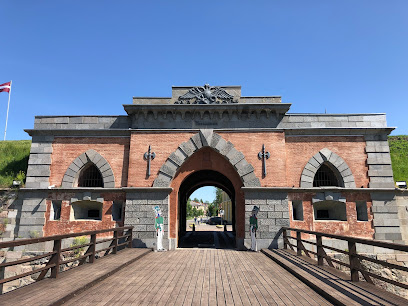
Rotko muzejs
Explore original Rothko paintings and contemporary art in the historic Daugavpils Fortress, a unique cultural experience in Eastern Europe.

Dubrovin Park
Escape to Dubrovin Park in Daugavpils: A historic green space with a beautiful fountain and a tribute to Mayor Dubrovin.
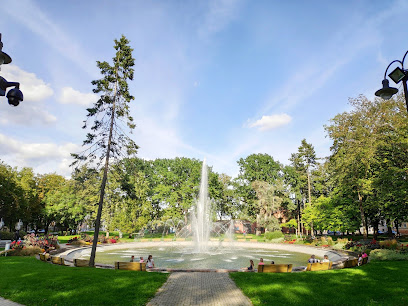
Latgale Zoo
Discover exotic wildlife and support conservation at Latgale Zoo, a unique and educational attraction in Daugavpils, Latvia.
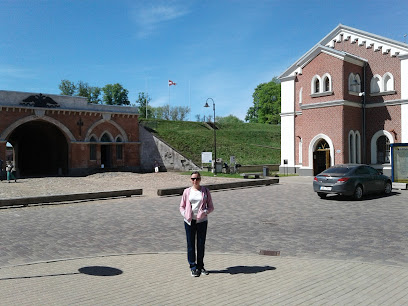
Vienības laukums
Experience the beauty and culture of Daugavpils at Vienības Laukums, a vibrant park in the heart of the city. Perfect for relaxation and exploration.
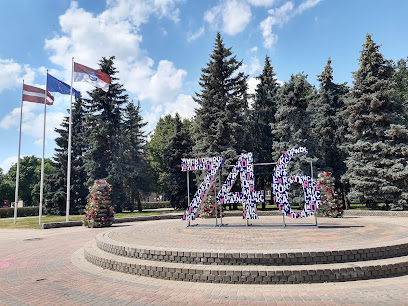
LUNA
Enjoy delicious pizza and coffee in a cozy atmosphere at LUNA, a local favorite in Daugavpils, Latvia. Open daily!
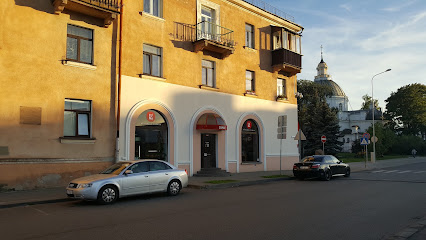
Daugavpils Tarzāns
Experience high-flying thrills at Daugavpils Tarzāns Adventure Park: obstacle courses and net adventures for all ages by scenic Lake Stropu.
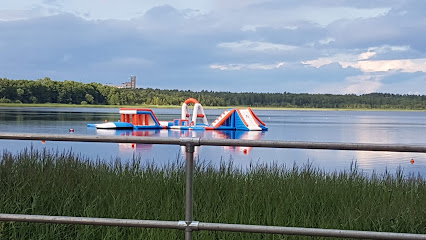
Shmakovka Museum
Discover the history, production, and cultural significance of shmakovka, the traditional spirit of Latgale, at Latvia's largest museum dedicated to the drink.
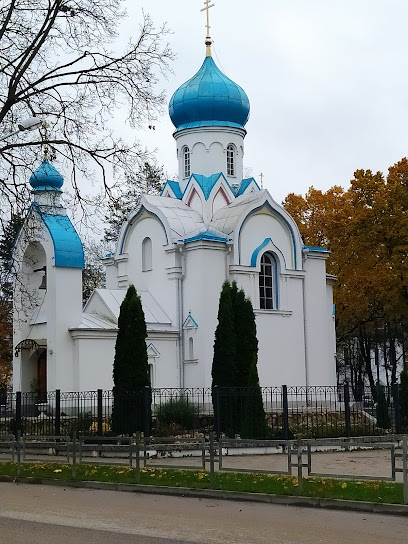
Daugavpils Skrošu rūpnīca
Explore the only ammunition factory in the Baltics open to tourists, with a historic shot tower and 19th-century industrial atmosphere.
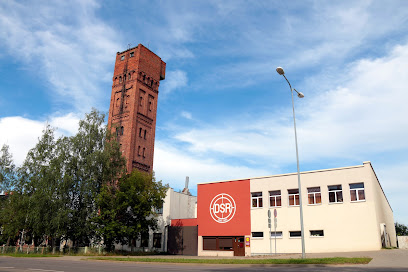
Orthodox Cathedral of Saints Boris and Gleb
Experience the architectural splendor and spiritual serenity of the Orthodox Cathedral of Saints Boris and Gleb in Daugavpils, Latvia.
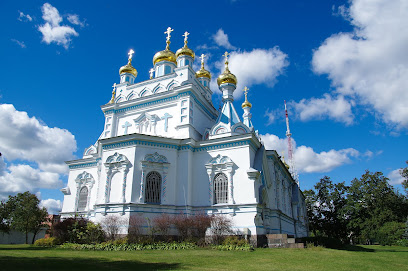
Dinaburgas pilsdrupas
Discover the medieval history and scenic beauty of Dinaburg Castle ruins in the heart of Latvia's Daugava River valley.
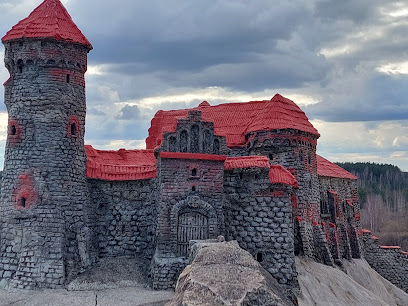
Daugavpils Unity House
A landmark of unity and culture in Daugavpils, hosting theater, concerts, and community events in a historic setting.
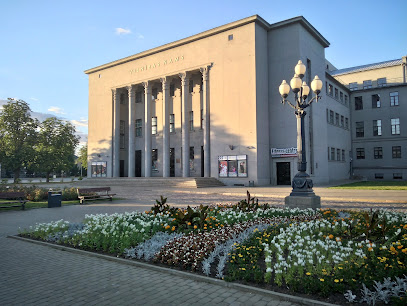
Raiņa māja Berķenelē
Discover the childhood home of Latvia's celebrated poet Rainis. Explore exhibits, workshops, and serene landscapes in Augšdaugava Municipality.
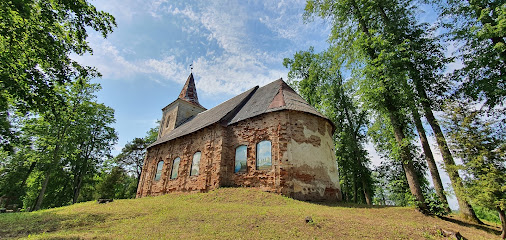
Daugavas loki
Discover the ancient Daugava River valley: breathtaking bends, rich history, and diverse nature in Latvia's Daugavas Loki Nature Park.
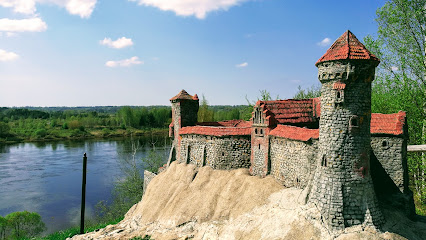
Inženieru arsenāls
Explore vintage cars & motorcycles at the Engineering Arsenal, a unique retro tech and industrial design center in Daugavpils Fortress.
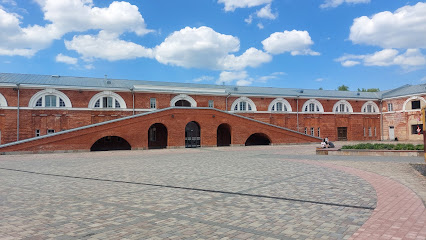
Unmissable attractions to see
Daugavpils Fortress
Discover the grandeur of Daugavpils Fortress, a historic military stronghold showcasing Latvia's rich heritage and stunning architectural beauty.
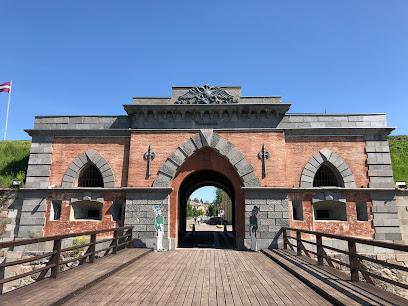
Basilica of the Assumption of Blessed Virgin Mary, Aglona
Discover the awe-inspiring Basilica of the Assumption in Aglona, a serene pilgrimage site steeped in history and architectural beauty.
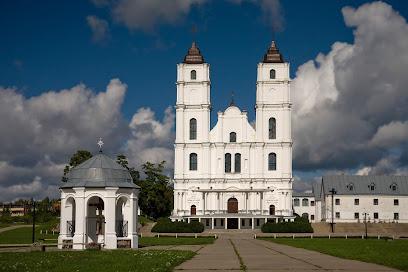
Rotko muzejs
Discover the emotional depth of Mark Rothko's masterpieces at Rotko Muzejs, a premier art museum in Daugavpils, Latvia.
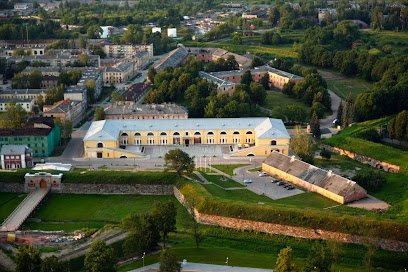
Dubrovin Park
Explore the enchanting Dubrovin Park in Daugavpils, where nature meets history in a serene landscape perfect for relaxation and reflection.
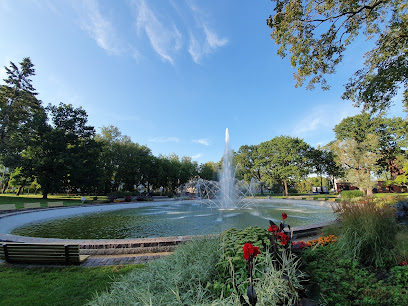
Latgale Zoo
Explore Latgale Zoo in Daugavpils, a family-friendly attraction showcasing diverse wildlife, interactive exhibits, and a special focus on reptiles.
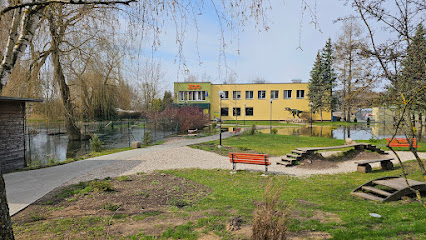
Central Park
Explore the natural beauty and cultural heritage of Central Park in Daugavpils, a serene spot for relaxation and recreation.
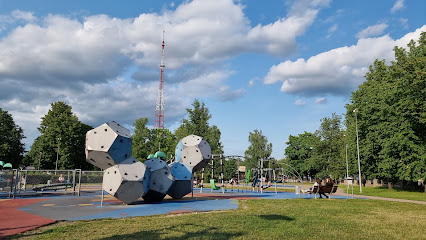
Vienības laukums
Discover the lush beauty and cultural richness of Vienības Laukums, the vibrant park at the heart of Daugavpils.
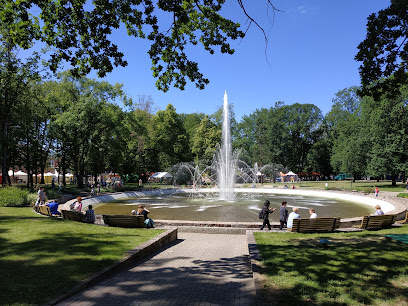
Aglona Bread Museum
Experience the rich heritage of Latvian bread-making at Aglona Bread Museum, a unique cultural attraction in Aglona, Latvia.
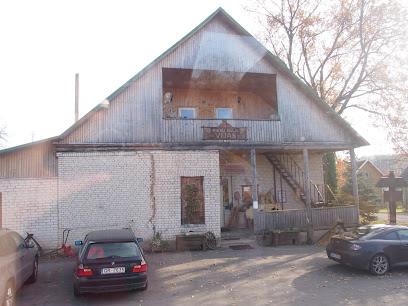
Daugavpils Tarzāns
Explore Daugavpils Tarzāns - an adventure park in Latvia offering thrilling treetop challenges and breathtaking views, perfect for family fun.
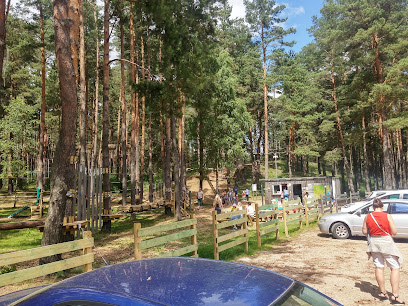
Esplanādes parks
Discover Esplanādes Parks: A serene escape in Daugavpils, perfect for leisurely strolls, picnics, and family fun amidst beautiful landscapes.
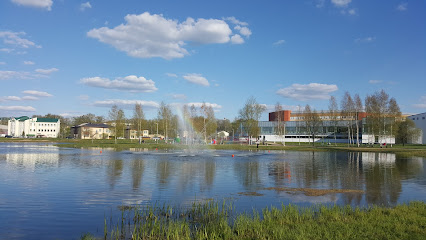
Daugavpils Skrošu rūpnīca
Explore the rich heritage of pottery craftsmanship at Daugavpils Skrošu rūpnīca, a unique tourist attraction and heritage museum in Latvia.
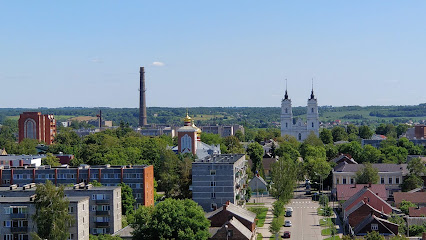
Lielā Stropu ezera centrālā pludmale
Discover the beauty of Lielā Stropu ezera centrālā pludmale, a perfect blend of relaxation and recreation in Daugavpils.
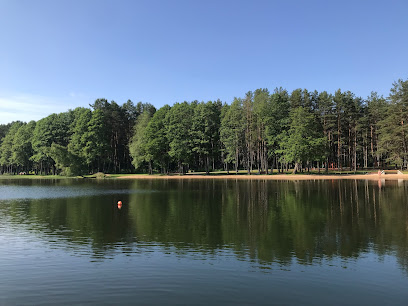
Orthodox Cathedral of Saints Boris and Gleb
Discover the architectural splendor and serene atmosphere of the Orthodox Cathedral of Saints Boris and Gleb in Daugavpils, a must-visit cultural landmark.
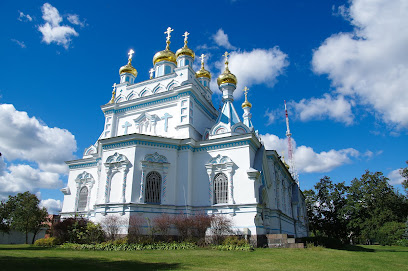
Dinaburgas pilsdrupas
Explore the historical ruins of Dinaburgas Pilsdrupas, a serene fortress surrounded by nature in Latvia's Naujene parish.
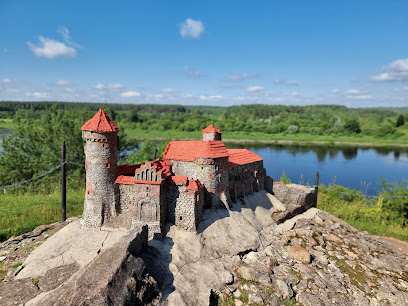
Daugavpils Local History and Art Museum
Explore Daugavpils' cultural heritage at the Local History and Art Museum, where history and art intertwine to tell the city's story.
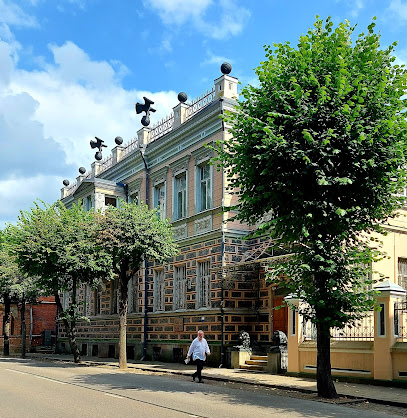
Essential places to dine
Park Hotel Latgola, viesnīca
Discover elegance and comfort at Park Hotel Latgola in Daugavpils – your perfect retreat with exceptional dining and modern amenities.
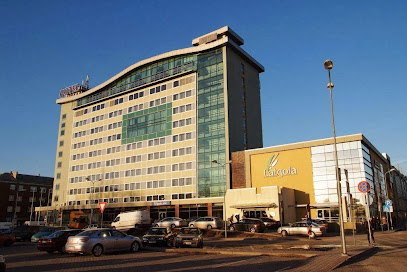
Gubernators
Discover Gubernators in Daugavpils - where local flavors meet international cuisine in a cozy atmosphere.
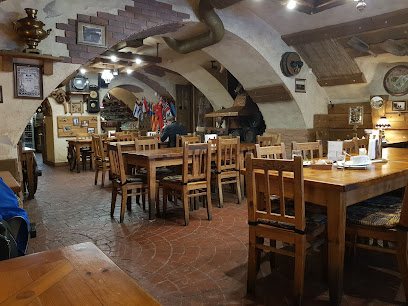
skovoroTka
Experience authentic Latvian cuisine with unique dishes at SkovoroTka in Daugavpils – where flavor meets tradition.
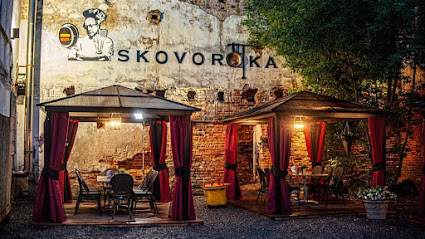
Vēsma Gastrobārs
Discover the perfect blend of Eastern European flavors and sushi at Vēsma Gastrobārs in Daugavpils - where every meal is a celebration.
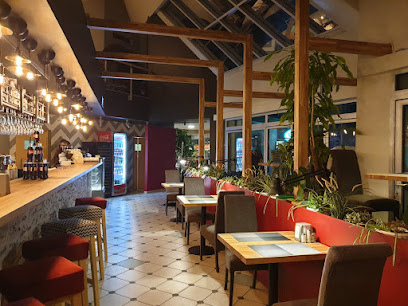
Happy Panda
Experience delightful Chinese flavors at Happy Panda in Daugavpils - where authentic cuisine meets warm hospitality.
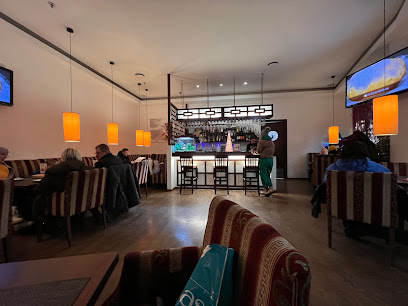
Hesburger
Savor the taste of fast food at Hesburger in Daugavpils—delicious burgers and fries await!
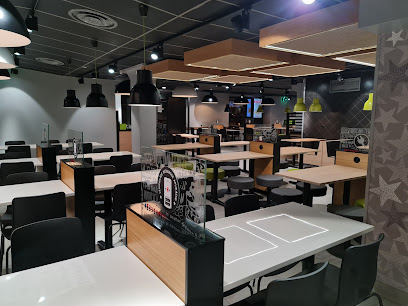
Čili Pizza
Experience the best pizza in Daugavpils at Čili Pizza - where every bite takes you on a flavor journey!
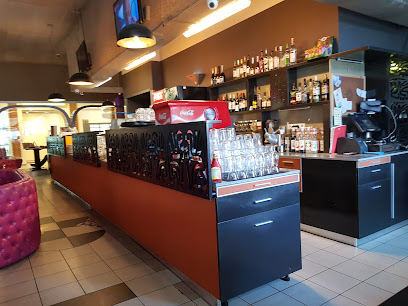
LUNA
Discover the perfect blend of delicious pizza and aromatic coffee at LUNA in Daugavpils - an unmissable destination for food lovers.
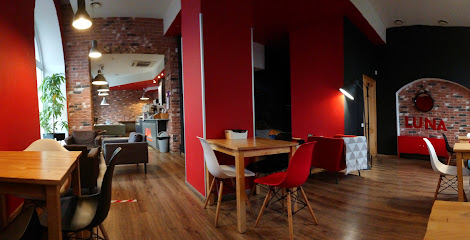
Pasaules brīnumi
Discover the perfect blend of café culture and sushi artistry at Pasaules brīnumi in Daugavpils.
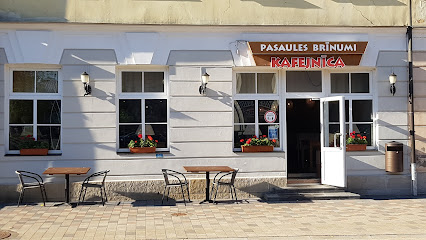
Svente (Jaunsvente) Manor
Experience exquisite dining at Svente Manor while immersing yourself in Latvia's rich history through its unique war museum.

Yoggi Bear
Experience the best of Latvian cuisine at Yoggi Bear in Daugavpils – where tradition meets flavor in every dish.
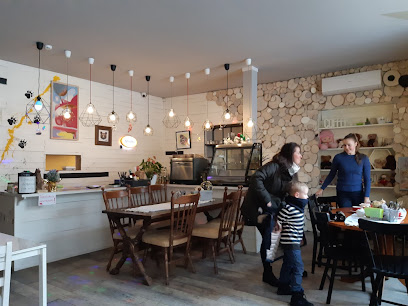
ART HUB
Experience culinary creativity at ART HUB, where Mediterranean and European flavors unite in a vibrant setting in Daugavpils.
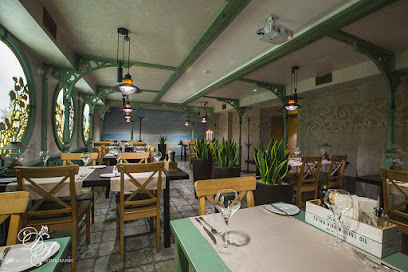
SanMari Hotel
Discover exquisite dining and comfortable accommodations at SanMari Hotel in Daugavpils – where local flavors meet warm hospitality.
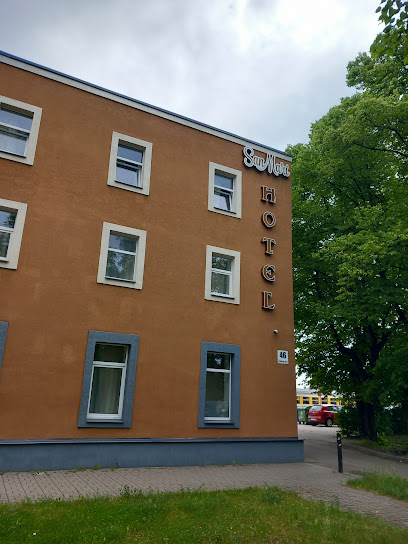
Pagalmins , kafejnica
Experience the vibrant flavors of Pagalmins Cafe in Daugavpils – where sushi meets local cuisine in a picturesque setting.
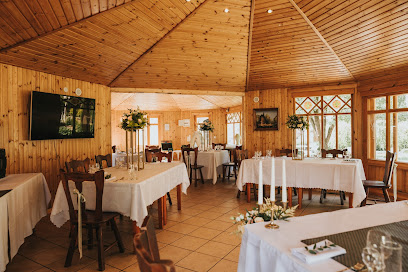
Full Fire
Discover the best fast food experience in Daugavpils at Full Fire - where local flavors meet quick service!
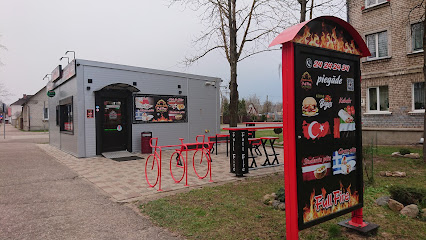
Markets, malls and hidden boutiques
TC DITTON
Discover a vibrant shopping experience at TC DITTON, Daugavpils' largest shopping mall, featuring diverse stores, delicious dining, and family-friendly entertainment.
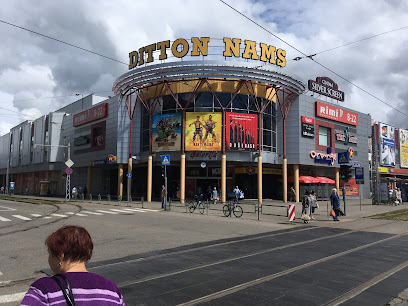
Beta, Šaurā
Explore Daugavpils with a visit to Beta, Šaurā - your local grocery haven for fresh produce and unique regional specialties.
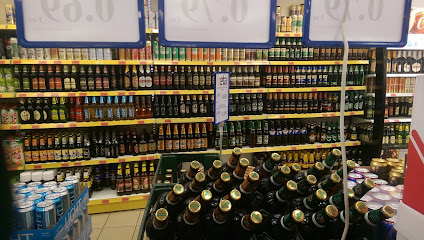
DEVONA, Puškina
Explore DEVONA in Daugavpils for an exquisite selection of wines and spirits, a delightful destination for beverage enthusiasts.
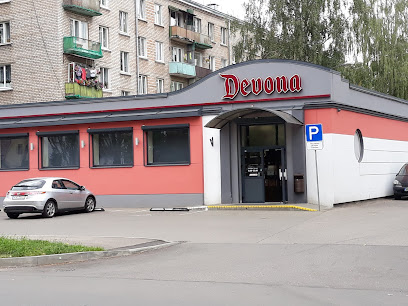
Beta, Ventspils
Explore local flavors and culinary delights at Beta, Ventspils, a charming grocery store in Daugavpils.
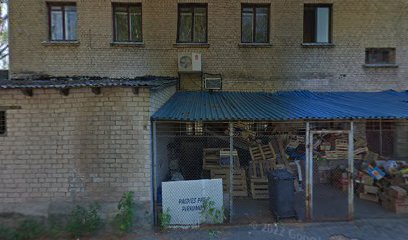
Elli V, veikals
Discover authentic Latvian flavors at Elli V, a charming grocery store in Daugavpils, offering local produce and traditional delicacies.
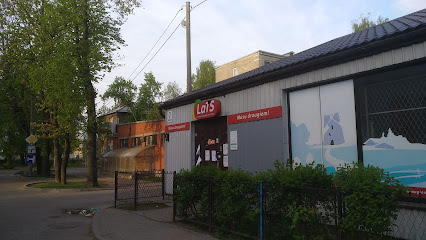
O.Reta , SIA, Zooveikals
Explore O.Reta in Daugavpils, your ultimate destination for all pet supplies and expert advice for caring for your furry friends.
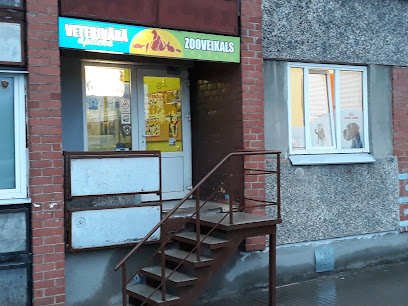
Sakotne , SIA
Discover the vibrant atmosphere and unique products at Sakotne, SIA, your ultimate shopping destination in Daugavpils.
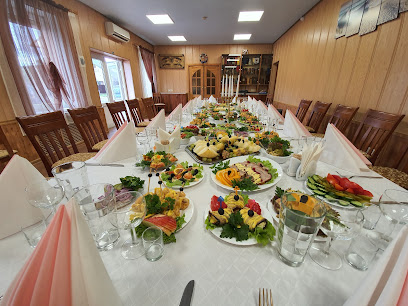
Dalinkids
Discover a magical toy store in Daugavpils, Latvia, where imagination meets fun and adventure awaits for every child.
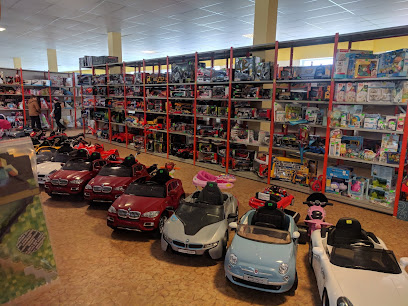
Kancelejas preces , lielveikals
Discover quality stationery, office supplies, and unique gifts at Kancelejas preces in Daugavpils, the perfect shopping destination for tourists.
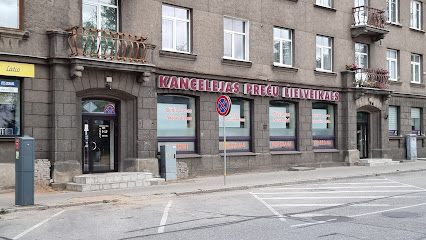
ESELO SIA - Daugavpils branch
Discover top-quality electrical products, lighting solutions, and tools at ESELO SIA in Daugavpils, a hub for DIY enthusiasts and professionals.
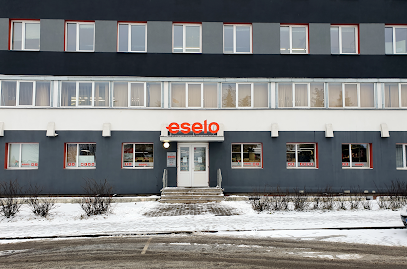
Tikimax
Explore Tikimax in Daugavpils, a vibrant shopping mall with diverse stores, delicious food options, and family-friendly entertainment.
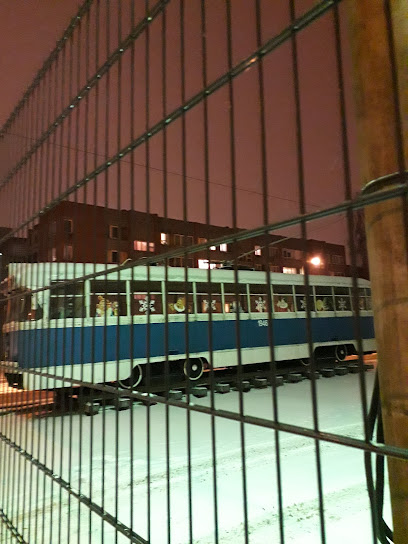
1000 Sikumi
Discover unique home goods at 1000 Sikumi in Daugavpils, where quality meets creativity for every style.
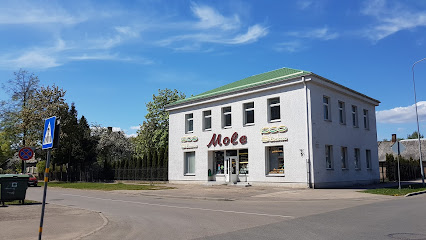
Tējas un kafijas veikals
Discover the essence of Latvian tea and coffee culture at Tējas un Kafijas Veikals, where every sip is a moment of bliss.
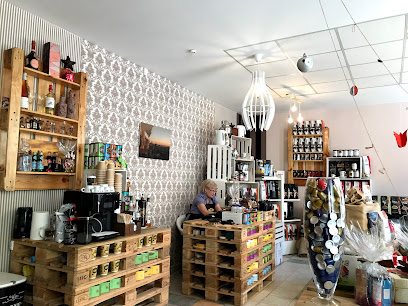
top!
Experience the essence of Daugavpils at Top! Grocery Store, where local flavors and fresh produce await every visitor.
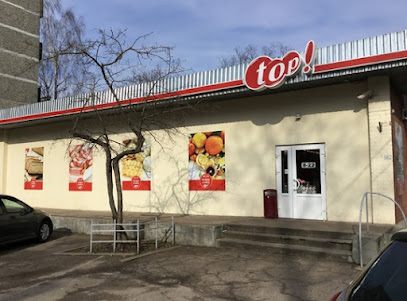
DreamDeco.Eu - Dāvanu un suvenīru veikals
Explore DreamDeco.Eu for unique Latvian souvenirs and crafts, a must-visit gift shop in Daugavpils celebrating local artistry.
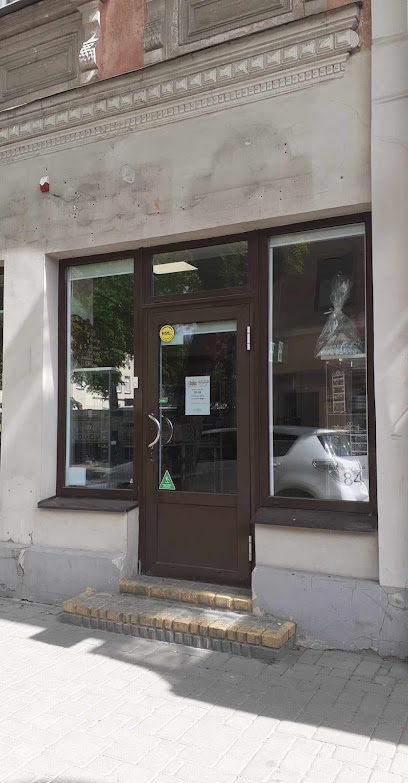
Essential bars & hidden hideouts
Gubernators
Discover the flavors of Latvia at Gubernators, a beloved restaurant in Daugavpils, offering a delightful blend of local and international cuisine.
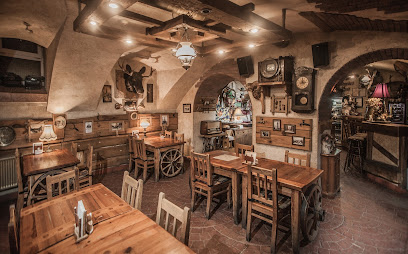
Vēsma Gastrobārs
Discover the flavors of Eastern Europe and beyond at Vēsma Gastrobārs in Daugavpils, where culinary creativity meets a vibrant atmosphere.
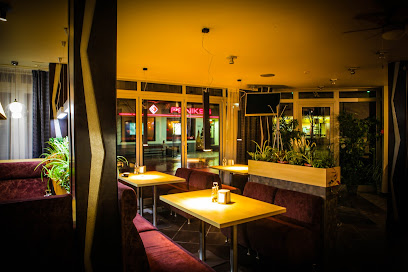
Ezītis Miglā
Discover the charm of Daugavpils at Ezītis Miglā, a cozy bar and coffee shop with a rich menu and vibrant atmosphere.
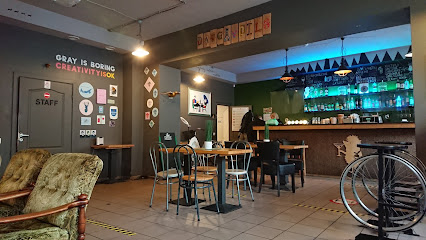
Yoggi Bear
Experience the delightful flavors and warm atmosphere of Yoggi Bear, a must-visit restaurant in Daugavpils, Latvia.
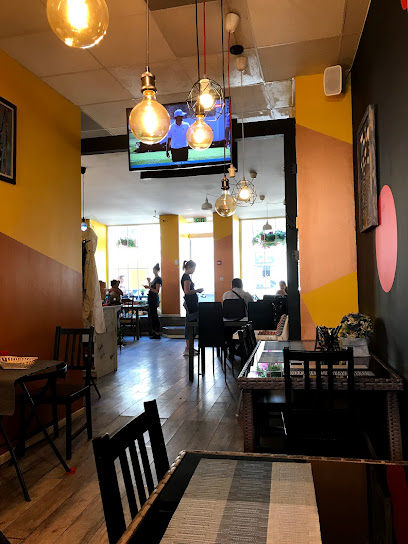
ART HUB
Discover Art Hub in Daugavpils - where culinary excellence meets artistic expression, offering Mediterranean and European delights in a vibrant setting.
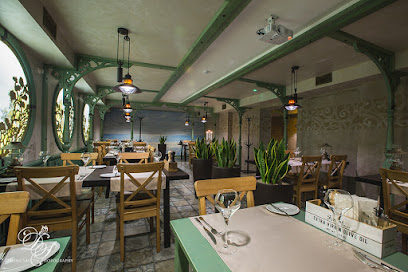
Artilērijas Pagrabi
Experience the vibrant nightlife at Artilērijas Pagrabi, Daugavpils' premier rock music bar with live performances and a welcoming atmosphere.
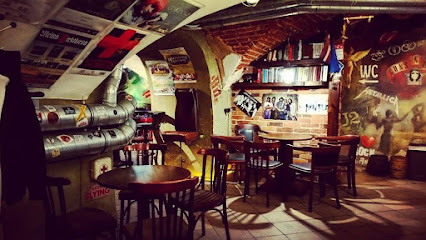
Klondaika (Cietokšņa)
Discover the lively spirit of Daugavpils at Klondaika (Cietokšņa), a vibrant bar offering a delightful mix of drinks and local hospitality.
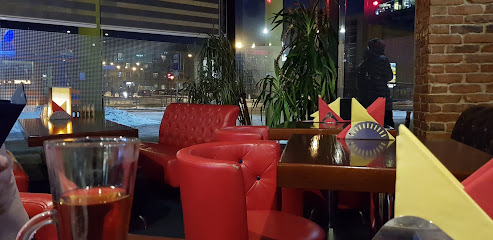
Klondaika
Experience the vibrant atmosphere and diverse drink options at Klondaika, the heart of Daugavpils' nightlife.
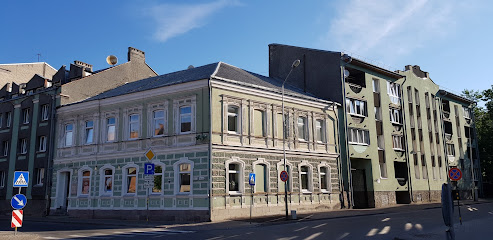
Lidadis Park
Discover the charm of Lidadis Park, a versatile bar and restaurant in Daugavpils perfect for dining, celebrations, and memorable moments.
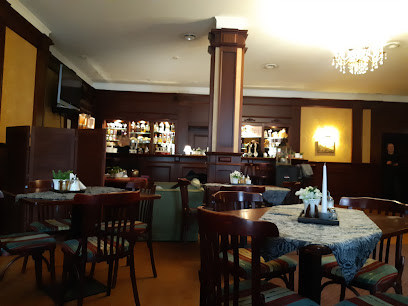
Daugavpils IGGI bārs & karbonādes
Experience local flavors at Daugavpils IGGI bārs & karbonādes, a lively bar offering delicious food and a friendly atmosphere in the heart of Daugavpils.
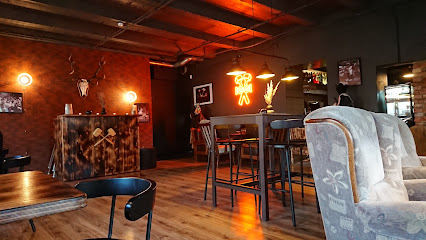
D.O.M.bar
Experience the vibrant cocktail scene at D.O.M.bar in Daugavpils, where innovative drinks meet a lively atmosphere, perfect for every night out.
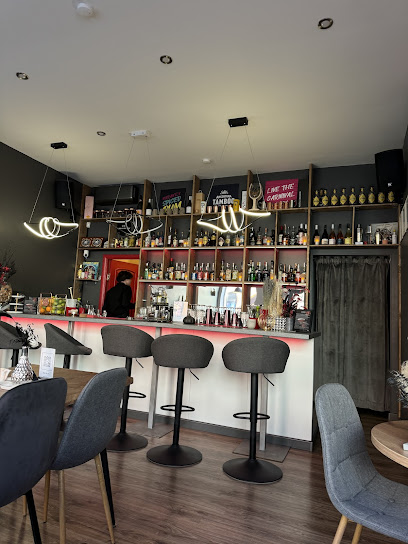
Albrecht Art&Wine
Discover the charm of Albrecht Art&Wine, a unique bar in Daugavpils offering exquisite wines and a vibrant artistic atmosphere.
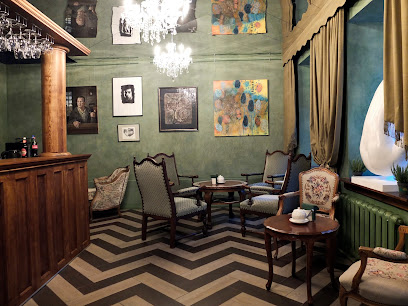
Lobby , bars
Discover the enchanting Lobby bars in Daugavpils, where exquisite drinks meet a cozy ambiance for an unforgettable night out.
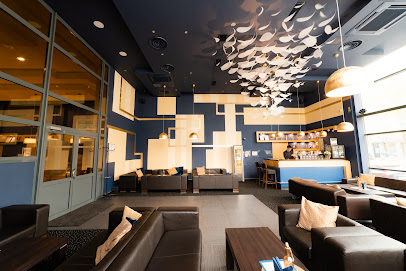
Klondaika , spelu zale-bars
Discover Klondaika, the ultimate pachinko parlor in Daugavpils, where thrilling games and vibrant atmosphere await every visitor.
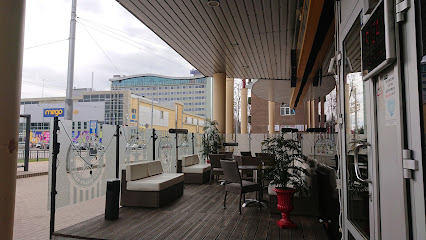
Local Phrases
-
- HelloSveiki
[svay-kee] - GoodbyeUz redzēšanos
[ooz rehd-zay-shah-nohs] - YesJā
[yah] - NoNē
[nay] - Please/You're welcomeLūdzu
[lood-zoo] - Thank youPaldies
[pahl-dyehs] - Excuse me/SorryAtvainojiet
[aht-vay-noh-yet] - How are you?Kā jums klājas?
[kah yooms klah-yahs] - Fine. And you?Labi. Un jums?
[lah-bee oon yooms] - Do you speak English?Vai jūs runājat angļu valodā?
[vai yoos roo-nah-yat ahng-loo vah-loh-dah] - I don't understandEs nesaprotu
[ehs nay-sah-proh-too]
- HelloSveiki
-
- I'd like to see the menu, pleaseEs vēlētos redzēt ēdienkarti, lūdzu
[ehs vay-leh-tohs rehd-zayt ay-dyehn-kahr-tee, lood-zoo] - I don't eat meatEs nēēdu gaļu
[ehs nay-ay-doo gah-loo] - Cheers!Priekā!
[pree-eh-kah] - I would like to pay, pleaseEs vēlētos samaksāt, lūdzu
[ehs vay-leh-tohs sah-mahk-saht, lood-zoo]
- I'd like to see the menu, pleaseEs vēlētos redzēt ēdienkarti, lūdzu
-
- Help!Palīdzība!
[pah-lee-dzee-bah] - Go away!Aiziet prom!
[eye-zyeht prohm] - Call the Police!Saukt policiju!
[sowkt poh-lee-tsee-yoo] - Call a doctor!Saukt ārstu!
[sowkt ahr-stoo] - I'm lostEs esmu pazudis
[ehs ehs-moo pah-zoo-dees] - I'm illMan ir slimība
[mahn eer sleem-ee-bah]
- Help!Palīdzība!
-
- I'd like to buy...Es vēlētos pirkt...
[ehs vay-leh-tohs peerkt] - I'm just lookingEs tikai skatos
[ehs tee-kah-ee skah-tos] - How much is it?Cik tas maksā?
[tsik tahs mahk-sah] - That's too expensiveTas ir pārāk dārgs
[tahs eer pah-rahk dahrgs] - Can you lower the price?Vai jūs varat pazemināt cenu?
[vai yoos vah-raht pah-zeh-meh-naht tseh-noo]
- I'd like to buy...Es vēlētos pirkt...
-
- What time is it?Cik ir pulkstenis?
[tsik eer poolk-steh-nees] - It's one o'clockIr viens pulkstenis
[eer vyens poolk-steh-nees] - Half past (10)Pusdesmit
[poos-deh-smeet] - MorningRīts
[reets] - AfternoonPēcpusdienā
[paych-poos-dyeh-nah] - EveningVakars
[vah-kahrs] - YesterdayVakar
[vah-kahr] - TodayŠodien
[shoh-dyehn] - TomorrowRīt
[reet] - 1Viena
[vyeh-nah] - 2Divi
[dee-vee] - 3Trīs
[trees] - 4Četri
[cheh-tree] - 5Pieci
[pyeh-tsee] - 6Seši
[seh-shi] - 7Septiņi
[sehp-teen-yee] - 8Astoņi
[ahs-toh-nyee] - 9Deviņi
[dehv-nyee] - 10Desmit
[dehs-meet]
- What time is it?Cik ir pulkstenis?
-
- Where's a/the...?Kur ir ...?
[koor eer] - What's the address?Kāda ir adrese?
[kah-dah eer ah-dreh-seh] - Can you show me (on the map)?Vai jūs varat mani parādīt (uz kartes)?
[vai yoos vah-raht mah-nee pah-rah-deet ooz kahr-tes] - When's the next (bus)?Kad ir nākamais (autobuss)?
[kahd eer nah-kah-mah-ees ow-toh-boos] - A ticket (to ....)Bilete (uz ....)
[bee-leh-teh ooz]
- Where's a/the...?Kur ir ...?
History of Daugavpils
-
Daugavpils, historically known as Dinaburg, was founded in 1275 by the Livonian Order. The strategic location on the banks of the Daugava River made it a significant military and trade center in the region. The original fortress built by the Livonian Order was crucial in defending the area against various invaders.
-
In 1561, Daugavpils came under the control of the Polish-Lithuanian Commonwealth. During this period, it became a prominent center for trade and culture. The city was known for its diverse population, including Poles, Lithuanians, Latvians, Jews, and Germans. This diversity fostered a rich cultural tapestry.
-
Following the third partition of Poland in 1795, Daugavpils became part of the Russian Empire. The city's name was changed to Dvinsk. Under Russian rule, Dvinsk developed as a significant industrial hub, with the construction of railways and factories contributing to its growth. The population swelled, and the city's infrastructure expanded rapidly.
-
World War I brought significant changes to Daugavpils. The city witnessed fierce battles and extensive damage. Following the war, Daugavpils became part of the newly established Republic of Latvia in 1918. The interwar period saw efforts to rebuild and modernize the city, with a focus on education and culture.
-
During World War II, Daugavpils was occupied first by Soviet forces and then by Nazi Germany. The city suffered immense destruction, and its Jewish community faced tragic persecution. After the war, Daugavpils was rebuilt under Soviet rule and became an important industrial center within the Latvian SSR. The Soviet era left a lasting mark on the city's architecture and infrastructure.
-
Since Latvia regained its independence in 1991, Daugavpils has undergone significant transformation. The city has invested in cultural heritage projects, restoring historic buildings and promoting tourism. Modern Daugavpils is known for its multicultural community, vibrant arts scene, and rich history, making it a fascinating destination for travelers.
Daugavpils Essentials
-
Daugavpils is accessible via several modes of transportation. The closest international airport is Riga International Airport, located about 230 kilometers from Daugavpils. From Riga, you can take a direct train, bus, or rent a car to reach Daugavpils. The train journey from Riga to Daugavpils takes approximately 3.5 to 4 hours, while buses are also frequent and usually take around 4 hours. Car rentals are available at Riga Airport, providing flexibility for exploring the region.
-
Daugavpils has a well-developed public transportation system, including buses and trams, which are affordable and reliable. Tickets can be purchased at kiosks or directly from the driver. Taxis are also available, and mobile apps like Bolt can be used for convenience. For those who prefer cycling, there are bike rental services. Walking is another great option to explore the city center and its main attractions.
-
The official currency in Latvia is the Euro (EUR). Credit and debit cards are widely accepted in most hotels, restaurants, and shops. However, it's advisable to carry some cash for smaller establishments and markets. ATMs are readily available throughout Daugavpils, and currency exchange services can be found in banks and exchange offices.
-
Daugavpils is generally a safe city for tourists. However, as with any destination, it's important to stay vigilant. Avoid walking alone at night in poorly lit areas and be cautious with your belongings in crowded places. Some neighborhoods, such as the area around the train station, may have higher petty crime rates, so it's best to stay alert.
-
In case of emergency, dial 112 for immediate assistance, which covers police, fire, and medical emergencies. Daugavpils has several hospitals and medical facilities. It is strongly recommended to have travel insurance that covers medical emergencies. Pharmacies are available for minor health issues and over-the-counter medications.
-
Fashion: Do dress smartly but comfortably. Casual attire is generally acceptable, but avoid overly revealing clothing, especially in religious sites. Religion: Do respect local customs and traditions. When visiting churches, dress modestly and follow any specific guidelines. Public Transport: Do have your ticket ready and validate it upon boarding. Don't eat or drink on public transport. Greetings: Do greet people with a handshake and maintain eye contact. A nod or a smile is also appreciated. Eating & Drinking: Do try local dishes and drinks. Don't refuse food or drink offerings, as it may be considered impolite.
-
To experience Daugavpils like a local, visit the central market for fresh produce and local goods. Engage with the locals, who are generally friendly and willing to share insights about the city's history and culture. Don't miss visiting the Daugavpils Fortress, a significant historical site. For a unique experience, take a walk along the banks of the Daugava River or explore the city's vibrant art scene, including the Mark Rothko Art Centre.
Trending Landmark in Daugavpils
Nearby Cities to Daugavpils
-
Things To Do in Utena
-
Things To Do in Panevėžys
-
Things To Do in Vilnius
-
Things To Do in Jonava
-
Things To Do in Sigulda
-
Things To Do in Cesis
-
Things To Do in Riga
-
Things To Do in Kaunas
-
Things To Do in Šiauliai
-
Things To Do in Jurmala
-
Things To Do in Valga
-
Things To Do in Võru
-
Things To Do in Marijampolė
-
Things To Do in Tartu
-
Things To Do in Viljandi







